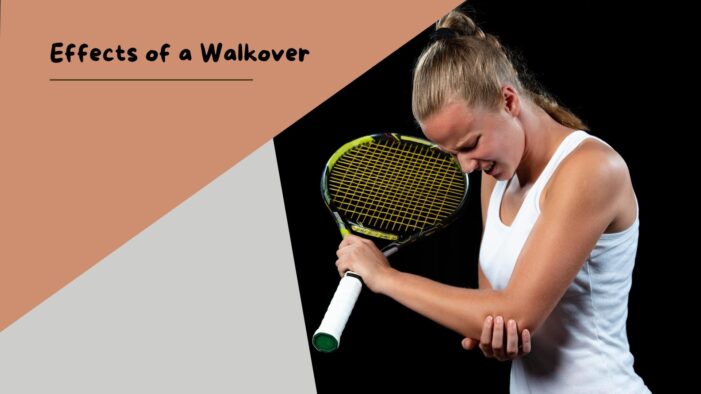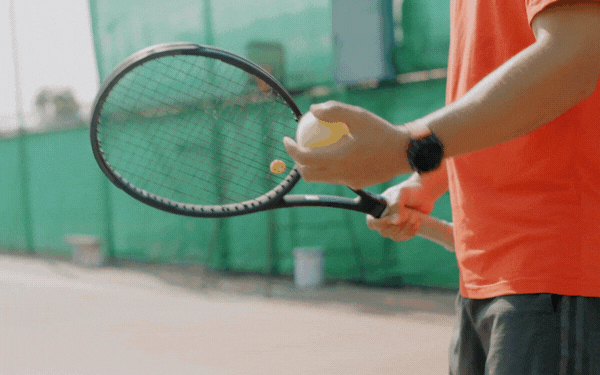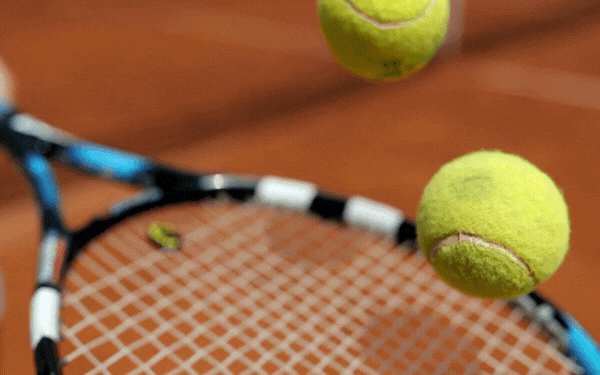Tennis is a sport with a rich and complex set of rules and terminology. One term that may be unfamiliar to new players or spectators is “walkover.” While a walkover may seem like an easy way to advance to the next round or win a match, it can also have implications for rankings, points, and sportsmanship. In this article, we’ll explore what a walkover means in tennis, why it might occur, and how it affects the players and the game.
Definition of a Walkover
A walkover, also known as a w.o., is a term used in tennis to describe a match where one of the players defaults on the match by not showing up. In this case, the player who was present is declared the winner by default and given the victory, also known as a “walkover”.
There are a few specific rules and regulations that determine how a walkover can be awarded and what happens when a match is declared as a walkover. Let’s learn more about these rules and regulations.
Definition of the term
Walkover is a term used in tennis to mean when a player wins a match without their opponent having to take any steps on the court. A walkover (abbreviated as W/O) occurs when one of the players is unable to start the match due to injury, illness, absence, or forfeit. In the event of a walkover, the successful player is awarded the entire points and games they would have won if they played.
Tournaments that use single-elimination formats may decide to use either a fixed draw (where only half of the spots are filled) or a bye (where every player advances). In these scenarios, players who progress through each round without facing another competitor may receive either points or prizes for their advancement.
Rules governing walkovers in tennis
According to the official rules of tennis set out by the International Tennis Federation (ITF), a walkover can be awarded when an opponent is unable, unwilling, or just plain refuses to compete in a match.
A walkover is determined by an official/umpire and must follow specific guidelines laid out by the ITF before it can be awarded. Non-appearance must be properly documented no later than 15 minutes after the scheduled start time of the match, otherwise, points and games gained become void and cannot be counted toward the player’s score. Additionally, both players must have presented their valid ID cards and have checked in with tournament staff upon arrival at their court.
Any verbal warnings given to players during a game do not come into consideration for determining whether or not a walkover should be assigned; such as medical or injury issues that handicap them from playing competitively and fairly. If any physical limitations prevent one player from being able to perform on par with his/her opponent then it will typically result in retirement if accepted by both players involved.
Reasons for a Walkover

A walkover is a win in tennis where a player is awarded the match as a result of their opponent’s inability or refusal to compete.
There are various reasons that can result in a walkover, and this article will discuss those reasons in detail.
Player illness or injury
In tennis, a walkover is a name given to a match that is played without one of the intended players competing. This often occurs when an injury or illness prevents one or both of the players from competing in the match. In this situation, the governing body may grant a walkover and declare their opponent as the winner of that round due to unavoidable circumstances.
The governing body may also award “lateness” points to players who are unable to make it to their game due to a genuine inability, such as illness, injury, or even personal mourning after the death of a family member. They can also be given if one player does not show up for a scheduled match and there is no reasonable explanation given. The player who did not show up will be prohibited from entering any future matches confirmed by that particular governing body and would have to appeal directly with them in order to possibly have this restriction lifted.
Player withdrawal
They are most often seen when there is an injury, illness, or any other medical reason for why a player is unable to participate in their scheduled match.
A tournament referee has the power to declare a walkover if sufficient evidence of withdrawal is presented. This can include doctor’s notes or other documents that prove that the player was forced to withdraw from participation due to circumstances outside of their control.
Under such scenarios, both players are expected to respect and accept the walkover decision – any failure to do so may result in disqualification and/or removal from competition rosters.
Player default
A player default walkover occurs when a tennis player is unable to compete in the match, usually due to illness or injury. By awarding a walkover, the player that was due to compete against the incapacitated player is advanced to the next round of the tournament.
Given the physical demands of tennis and its often unpredictable weather conditions, walkover defaults are actually quite common in professional tournaments. A player can also suffer from illness or injury before or during a tournament – or even after a match has started – meaning that no competition takes place. When possible, players are encouraged to finish their match if less than four games have been played and both players agree, but if competition cannot take place then a walkover is awarded.
Depending on tournament rules and regulations, it is possible for automatic defaults (where no competitive play has taken place) and voluntary defaults (where the injured player withdraws from their match) to be classified as walkovers.
In some cases, a lengthy default time can be set before which a player must arrive at the court; this may typically vary between 20-30 minutes. If they do not show up within this time frame then they may forfeit by defaulting their opponent through an official walkover – allowing them to advance in their respective tournament with fewer matches under their belt; helping preserve strength and endurance over the course of their future matches.
Effects of a Walkover

It’s important to understand the effects of a walkover as they can have an impact on rankings and standings. This section will provide a deeper understanding of what a walkover might mean in tennis.
Impact on the tournament
In the case of a tournament, this can affect not only the winner’s performance but also the rest of the tournament structure.
The most obvious consequence is that it leaves one player who could have competed in later rounds absent from further competition. This can impact who advances and potentially changes the outcome of games and sets played in later rounds. On occasion, this can even end up changing who wins an event and ultimately claim a championship title. It can also mean less entertainment for audience members, sponsors, and broadcasters who had been looking forward to watching players participate in each round of competition.
In addition to weakening the tournament structure, a walkover means that someone will miss out on potential prize money they could have won after advancing through earlier rounds – such sums typically increase with each round completed since semifinals and finals hold the largest winning bonuses (usually hundreds of thousands of dollars). This ultimately affects all tournament participants as any funds forfeited are redistributed amongst those remaining available for competition – meaning those who do continue into later rounds still get half their winnings but are divided by fewer players than originally anticipated.
Both amateur players, who may be relying on these tournaments as an income source, or professionals already guaranteed large sum payouts are affected when such outcomes arise regardless of whether they benefit or suffer from a situation where a tournament is decided by walking over rather than playing hard fought matches on the court.
Impact on the players
As with any sporting match, walkovers can have a serious and lasting effect on players. In addition to the competitive consequence of losing prospective rankings points, coaches or trainers may hold players accountable for any losses due to their partner’s absence. It can be difficult to establish specific expectations between teammates due to the nature of the sport, and external and unpredictable factors such as injury or conflict with scheduling can affect attendance levels.
In terms of personal pride, walkovers can create feelings of embarrassment or guilt within players who feel they don’t fulfill their commitment as athletes by not honoring their opponents when they fail to show up at matches. Feelings of anxiety can be greatly heightened during tournaments where showing up on time is expected so players should make sure to compete against those who intend to actively participate in exchange for commensurate results from their competitors.
Players should also ensure that regulations set by tournament directors are observed in order for them not to be held responsible for any forfeits that may cause unexpected outcomes during competition.
Strategies to Avoid Walkovers

This usually happens when one of the players fails to appear on the court on the scheduled play date. Thankfully, there are strategies that can be implemented to avoid walkovers.
Prepare for the match
It is important to prepare adequately before any tennis match in order to prevent walkovers. Physical preparation includes warming up properly and stretching so that you are physically ready when the match begins. Psychological preparation involves mentally preparing yourself for the match by focusing on your strengths and eliminating any doubts or negative thoughts. You should also set realistic goals and expectations of yourself, which will motivate you to give maximum effort during the match.
You can also strategize with your coach or practice partner to come up with game plans that can be deployed during the match if needed. This entails setting up tactics such as aggressive serves, varied spins, angles of the shot, footwork maneuvers, and other strategies that would give you an advantage over your opponent on the court.
Stay focused and motivated
Staying focused and motivated can go a long way in helping to avoid walkovers in tennis. It is important to carry a positive attitude when playing and to stay motivated when matches become challenging. In order to avoid them, it is essential for players to be fully committed to the match and put their full energy into every point. If a player loses focus or motivation, it can easily lead to them losing points or even the match.
To remain focused throughout the match, players should think about their end goal of wanting to win and strive for that goal by keeping all distractions away from their minds. During break times between points, try not to think about anything outside of tennis – instead, focus on the game and repeat positive mantras that will keep you inspired throughout your matches. Additionally, if you are having trouble staying focused or motivated during individual points, remind yourself of why you wanted to play this match and use that thought process as motivation.
Motivation is key because it keeps you going even when fatigue sets in after long rallies or challenging opponents. Whether it’s by visualizing yourself winning at each point or congratulating yourself on successful shots each time, always take mental notes of any successes play-it-safe shots which were played correctly which gives you another level of confidence boost as well as gives you practice for tough situations in future games. The more active your mindset stays during matches, the less likely you are going to have walkovers due to being too mentally drained from your game.
Practice and train regularly
Regular practice and training are essential if you want to improve your tennis playing skills and reduce the chances of getting a walkover. Incorporating drills, exercises, and hitting sessions can help to sharpen your skills, build muscular strength and improve movement on the court. You should also keep track of your progress so that you can regularly assess how well you are doing in terms of keeping your fitness up and honing your tennis-specific skills.
You should also attend local tournaments, as these provide an excellent opportunity for competition in different formats such as singles, doubles, and mixed doubles. Additionally, tournament play allows for the observation of different styles of play which can serve to greatly expand upon a player’s existing knowledge; when coupled with regular drills back home this provides ideal prep for upcoming matches.
In addition to physical practice, it is also important to consider the mental aspects before each match. This includes coming up with a game plan based on prior knowledge of your opponent’s style while thinking tactically about which specific areas of the court most effectively facilitate points won without too much exertion or energy wasted.
Visualization techniques are often employed to mentally rehearse winning strategies prior to entering so as to create both self-confidence ahead of time but also establish a competitive mindset conditioned by past successes experienced in other matches or training sessions.
FAQs

Can a walkover be granted after a match has started?
No, it can only be granted if a player does not show up for a scheduled match.
How is a walkover recorded in the official record of a tennis tournament?
A walkover is not recorded as a win for the player who received it, nor a loss for a player who called it.
Can a player who is disqualified in a match still receive a walkover in the next round of a tournament?
No, a player who is disqualified in a match cannot receive a walkover in the next round of a tournament.
Is there a time limit for a player to show up for a scheduled match in tennis?
Yes, there is a time limit for a player to show up for a scheduled match in tennis, which varies depending on the tournament and the rules.
Can a walkover be granted in a doubles match in tennis?
Yes, it can be granted in a doubles match in tennis, if one of the players is unable to compete.
Conclusion
In conclusion, a walkover is a term used in tennis to describe a situation in which one player is unable to compete in a scheduled match, resulting in their opponent being declared the winner without actually playing. While a walkover can be an easy way to advance to the next round or win a match, it can also have implications for rankings, points, and sportsmanship. Understanding the meaning of a walkover in tennis is essential for players, coaches, and fans of the sport.
By knowing what a walkover is, why it might occur, and how it affects the players and the game, everyone can appreciate the unique rules and terminology that make tennis such a fascinating and challenging sport. Whether you’re a casual spectator or a competitive player, knowing the ins and outs of walkovers in tennis can help you better understand and enjoy this popular sport.

